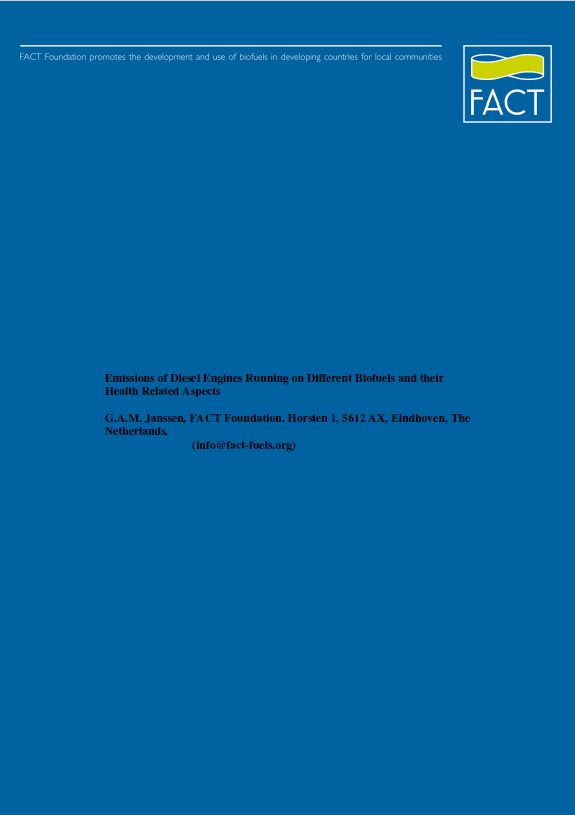Emissions of diesel engines

Fossil fuels (sometimes called petro-diesel) for use in compressed ignition (diesel) engines are increasingly being replaced by fuels consisting of a blend of petro-diesel and oils from a vegetable origin (either pure or after a process called transesterification, as their mono-alkyl esters). Mixtures of such esters and petro/diesel are generally called biodiesel.
In addition, the use of pure oils (SVO = Straight Vegetable Oil or PPO = Pure Plant Oil) is becoming of interest as alternative fuels for diesel engines. This is especially the case in remote areas in developing countries, where petro-diesel and biodiesel are often not readily available and/or expensive.
In many countries, the emissions of diesel engines running on petro-diesel are strictly regulated. Upper limits for the emission of e.g. CO, NOx, THC (total unburned hydrocarbons) and PM (particulate matter) have been defined. Currently, these limits are in most cases also used for biodiesel in countries where the use of biodiesel is permitted.
There is little specific legislation related to the use of SVO as fuel for diesel engines; however it is assumed that the emission of regulated components will generally have to meet the same criteria as set for petro-diesel and biodiesel.
Various studies on emission characteristics and related health effects of the use of biofuels (both biodiesel and SVO) showed conflicting results.
Early in 2007 results were published from a study, carried out in Germany, determining possible negative health effects of diesel engine emissions using vegetable oil as fuel.
It was found that the use of rapeseed oil resulted in a strong increase (more than tenfold) of mutagenic substances emitted, as compared to the use of standard petro-diesel as fuel (046).
At that time, there was a lack of information on the health effects of biodiesel and SVO exhaust, but it was recognised that more research on this topic was needed (025).
In order to get a better understanding of the risks and health effects involved with the use of these fuels, a comprehensive web-based literature search on this subject was started in 2008.
The objective was to collect information, available on the internet, on the emission of both regulated and non-regulated compounds.
More specifically, this literature search was directed at the following topics:
• Emissions of engines running on petro-diesel vs. engines running on biodiesel;
• Emissions of engines running on petro-diesel vs. engines running on SVO;
• Specific studies of emissions of engines running on SVO in general and Jatropha oil in particular.
